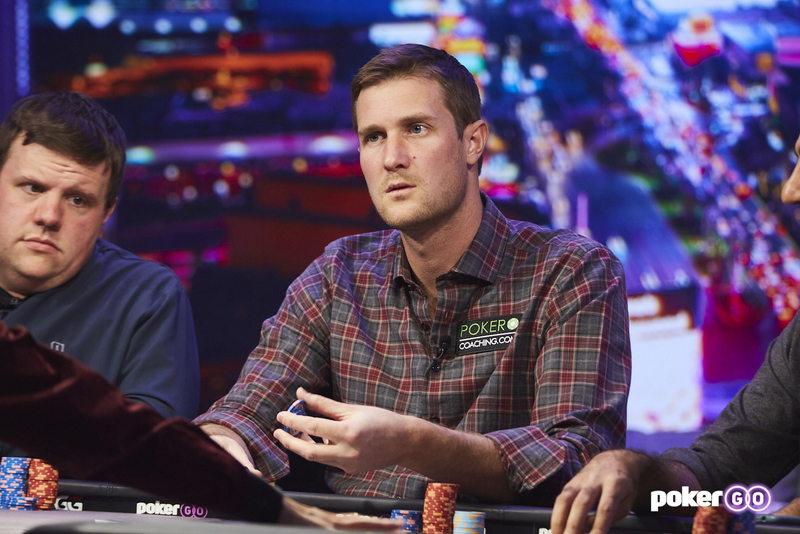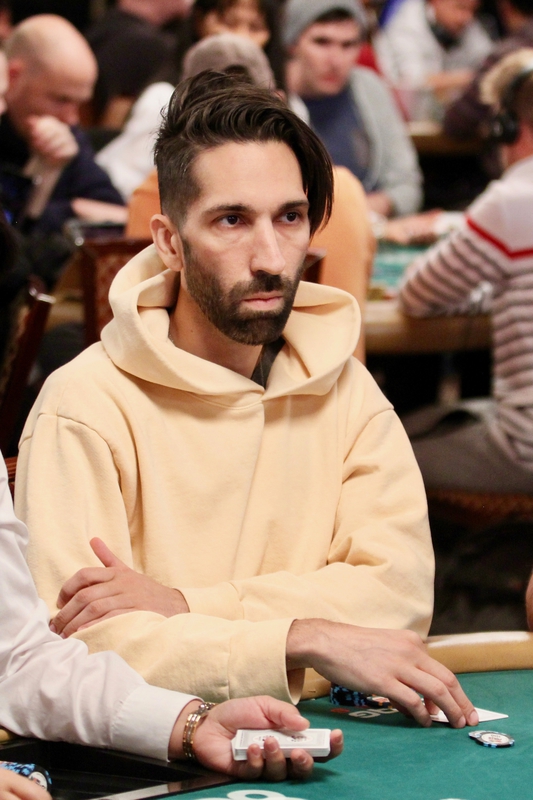






Poker Strategy: Spotting Leaks, Both In Your Own Game And OthersBrad Owen, Lynne Ji, and Johnnie Moreno Share Their Thoughts |
|
|

The Players: Brad Owen, Lynne Ji, and Johnnie Moreno
Craig Tapscott: What are a few leaks you had in your game early on? How did you go about correcting them?
Brad Owen: I’ve been susceptible to all kinds of leaks throughout my poker career. It all came down to lack of discipline in one way or another. Sometimes that meant not walking away from the tables when I was tired, upset, not playing my best, or maybe I just wasn’t a favorite to win in the game to begin with.
What was most detrimental, which eventually lead to me going broke, was when I lacked discipline with my bankroll. I initially had success in a $5-$10 game at Commerce, prior to moving to Los Angeles. But once I did make the move to LA from Las Vegas, I was getting wrecked daily. I had too much ego and pride to move down in stakes. I blamed everything on running bad.
I definitely wasn’t running well, but that wasn’t the real issue. The real issue was that I was playing too big for my bankroll/comfort level and the losses, mixed with a higher cost of living, was stressing me out. This caused me to play even worse. It was a vicious downward spiral. Every time I showed up, I felt like I had to win. It’s significantly easier to play better when you’re over-rolled and the day-to-day results don’t matter as much. I had to learn that lesson the hard way.
It’s now my second stint as a professional poker player and I do things quite a bit differently. I make sure I play stakes that I can afford. I’m very cautious and disciplined with bankroll management, game selection, and even financial decisions away from the poker tables. I’m too old to have to move back in with my parents… again.

Lynne Ji Credit: PokerGO
In terms of correcting it, it’s definitely still a work in progress every time I sit down at the poker table. As some people might have seen, my Q-10 hand on High Stakes Poker against Jean-Robert Bellande and Tom Dwan was a result of my inconsistent mental game. I found it incredibly disappointing, because firstly, a bunch of friends had bought a piece. Secondly, it was really hard to face the reality that my mental game wasn’t what I thought it was.
I haven’t done a ton to specifically address in-game tilt, but I hired a performance coach that taught me a lot of techniques to better manage my emotions. I find that the steps I’ve taken to just try and live a more balanced lifestyle have helped the most. I’ve meditated on and off for the last few years, but I’m finally getting to a point where I’m sticking with it, because I’m starting to realize that consistency is key. I used to only use it to remedy tilt when I was already off my game, but now I try to practice a few times a week, because I feel so much better on and off the felt.
The other thing that I’ve found that really helps me is very simple, but shockingly effective. I just sit there and slowly take deep breaths in and deep breaths out. I count to a beat of four on the way in, and then I hold for four, breathe out for four, and hold for four again and rinse and repeat that until I feel more calm.
Johnnie Moreno: Identifying your leaks is one of the most difficult things to do in poker, especially in the early stages of your career. We don’t know what we don’t know, and as a result we tend to closely correlate good results to an absence of glaring leaks.
I was no exception. Early on I cared about having winning sessions. An example of an adjustment I would make to ensure a higher session win percentage would be to three-bet less and play passively from the blinds. I would lose smaller pots as a result, but at a cost. I’d have difficulty extracting max value from my big hands (which I didn’t realize at the time.)
It was hard to identify this leak because my results were stellar. A high win percentage with a solid hourly was secretly stunting my growth. The only way through this was to adopt a learner’s mindset.
I distinctly remember describing a strategy I was using from the small blind to my brother, Andrew Moreno who is a well-studied, high level professional, (read more about Andrew’s big win on pg. 21) and him replying that I needed to take that strategy and throw it in the garbage. That is precisely what I needed to hear to help me shift into that learner’s mindset. A massive disruption from someone I respect and trust.
So, my overall advice is to drop the ego, seek out high level training (through a coach or a website), and adopt a learner’s mindset.
Craig Tapscott: What are a few of the most egregious leaks you come across in many of your opponents? And why do you think they are so oblivious to working on them?

Brad Owen Credit: PokerGO
My guess why people fall into these patterns of playing too many hands and calling light is that I think they just want to get involved in the action as much as possible. Once they make it to the river, they get curious and have to see whether or not they got bluffed. They want a conclusion. Sometimes I fall victim to this as well. I occasionally make bad river calls because it’s much more fun for a vlog (video blog) if we’re able to find out what the villain had.
The big leaks I see from pros mainly stem from laziness – not putting in enough hours playing, not putting in enough hours studying, and poor game selection. There aren’t too many good reasons to sit in a bad game in Las Vegas if you’re a $2-$5 player and you’re grinding for a living. There are multiple options on the strip to find soft tables. I’ve noticed people tend to get comfortable or just prefer to spend all of their time at one room and at one stake level. They aren’t willing to venture out to potentially more lucrative locations, and they don’t want to play stakes that they think are beneath them.
My friend, who is one of the most profitable $2-$5 players in town, if not the most profitable, will regularly play at two or three locations in a night in order to find the best games. Occasionally, he’ll even jump into a $1-$3 game if he thinks he can make more money in it. Spending time walking or driving from property to property, and having to potentially wait on multiple lists, can occasionally cut into daily win totals, but overall, it’s better for your bottom line to be willing to hop around.
Lynne Ji: The first leak that immediately comes to mind are opponents that don’t know (or do not care about) preflop ranges. I find that most of my opponents play way too many hands, although occasionally, in ante games with people that don’t know their ranges yet, some pros will play too tight. I don’t think people are necessarily oblivious to having this leak, I just don’t think they realize exactly how costly preflop mistakes are.
Moreover, I think plenty of people just don’t care. Some recreational players aren’t there to grind out a living, they’re there to have fun. Some professionals have grinded out a living despite rather large deviations from what the charts would recommend.
Another leak I notice occasionally, more so from recreational players, are bet sizing tells. I think it’s very natural for people to want to put more money in the pot when they have a strong hand and less money in the pot when they have a weak hand, but it’s a rather large mistake and a rather common one. I feel like if bet sizing isn’t something someone is actively looking for, it’s easy to miss, and for that reason, bet sizing tells aren’t that punishing. However, if someone is looking to take their game to the next level, I would encourage them to pay close attention to their own sizes as well as their opponents.
Finally, I think the last leak that I notice in some of my opponents is the tendency to play a little too passively. It is a great counter to an aggressive opponent like me, but I frequently see people miss a street of value or an obvious spot to bluff. Once again, I think many people are naturally somewhat risk averse, but in poker, the only thing that matters is EV (Expected Value). Perhaps, it isn’t so much that people are oblivious to this mistake; rather, it’s just a hard one to correct.

Johnnie Moreno
The second thing that seems obvious but is more nuanced, is tilt control. So often people are convinced that they aren’t tilting, when in actuality there are subtle changes to their strategy. For example, after experiencing a tough beat you may play a nut flush draw more aggressively. Sure, this isn’t classic tilt because you have great equity, but your willingness to embrace variance has changed.
Lastly, people have a very difficult time leaving the table when down (I’ve had this issue in the past.) We would rather sit and be miserable in a tough session, than leave and book a loss. Intellectually we know it’s one long session, but for some reason we feel the need to try and climb back to even while being miserable at the table. One hack I’ve done to help me leave tough sessions is to track the stat of average win and average loss. I know when my average loss is 2x my average win, I’m doing a terrible job of leaving while being down. When I have the discipline to book a small loss, I’ll take a peek at how much my average loss drops and find some satisfaction that the number has decreased. ♠
Brad Owen is one of the most popular poker vloggers on YouTube. He learned how to play poker from his father and played through college at tribal casinos. Owen received a bachelor’s degree at University of San Diego, then a master’s at UNLV, and has appeared on Poker After Dark and Live at the Bike. You can follow him on Twitter @TheBradOwen or visit his YouTube channel Brad Owen Poker.
Lynne Ji first started playing poker at her local Los Angeles casinos. While moving up the stakes, she’s had opportunities to play in London, Macau, and Las Vegas, appearing on shows such as Poker After Dark, High Stakes Poker, and the WPT Theta Network Cash Game. She also enjoys board games, yoga, and traveling. Find her on Twitter @HelloItsLynne or check out her YouTube vlogs Hello Its Lynne.
Johnnie “Vibes” Moreno has been a poker professional for 15 years, primarily focusing on no-limit hold’em cash games. He began creating content on YouTube nearly four years ago, documenting his life as a poker player, and has since appeared on a Poker After Dark, the WPT Cash Game, and Live at the Bike. Follow him on Twitter @JohnnieVibes, or his YouTube show Embrace The Grind.
